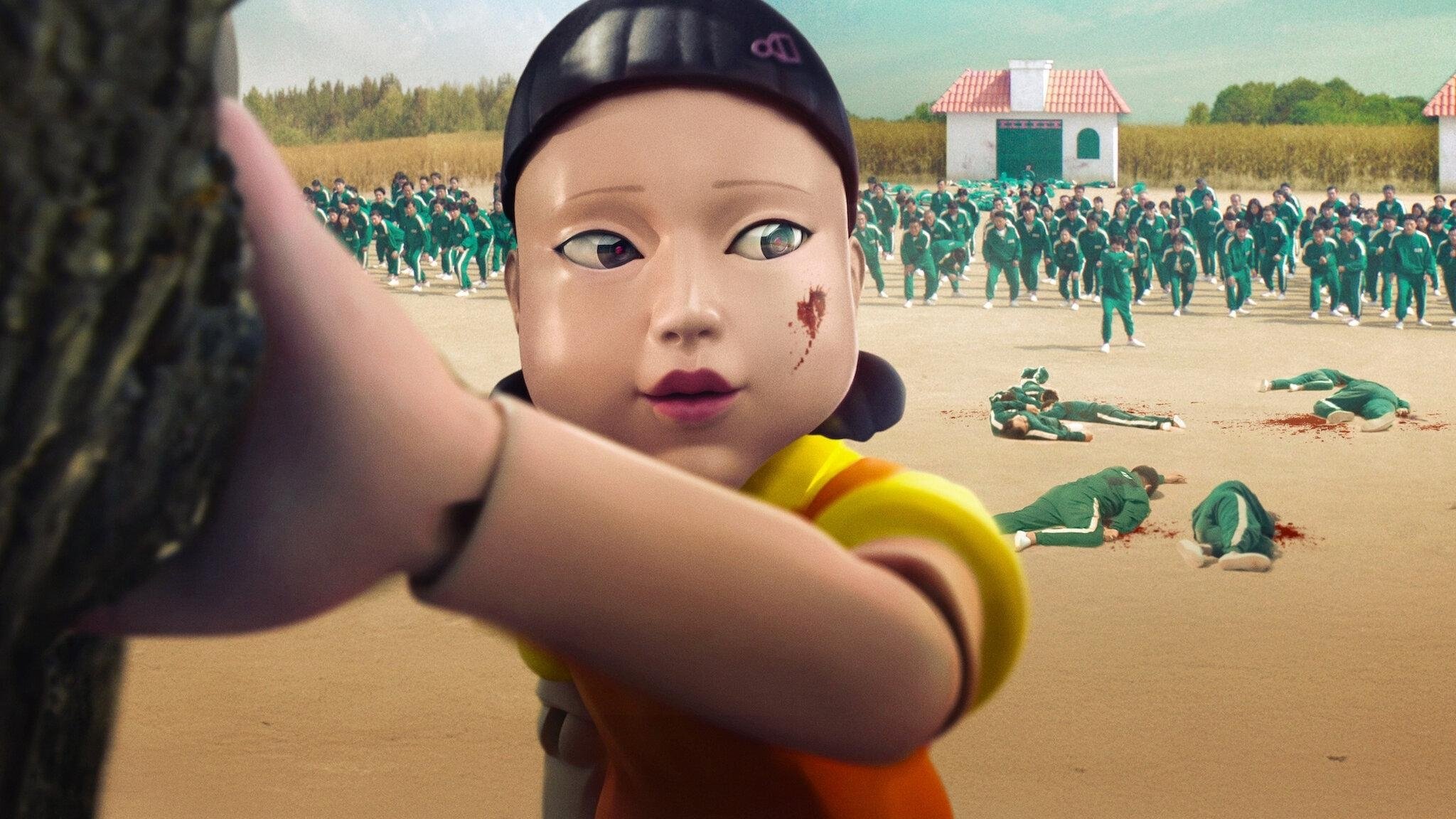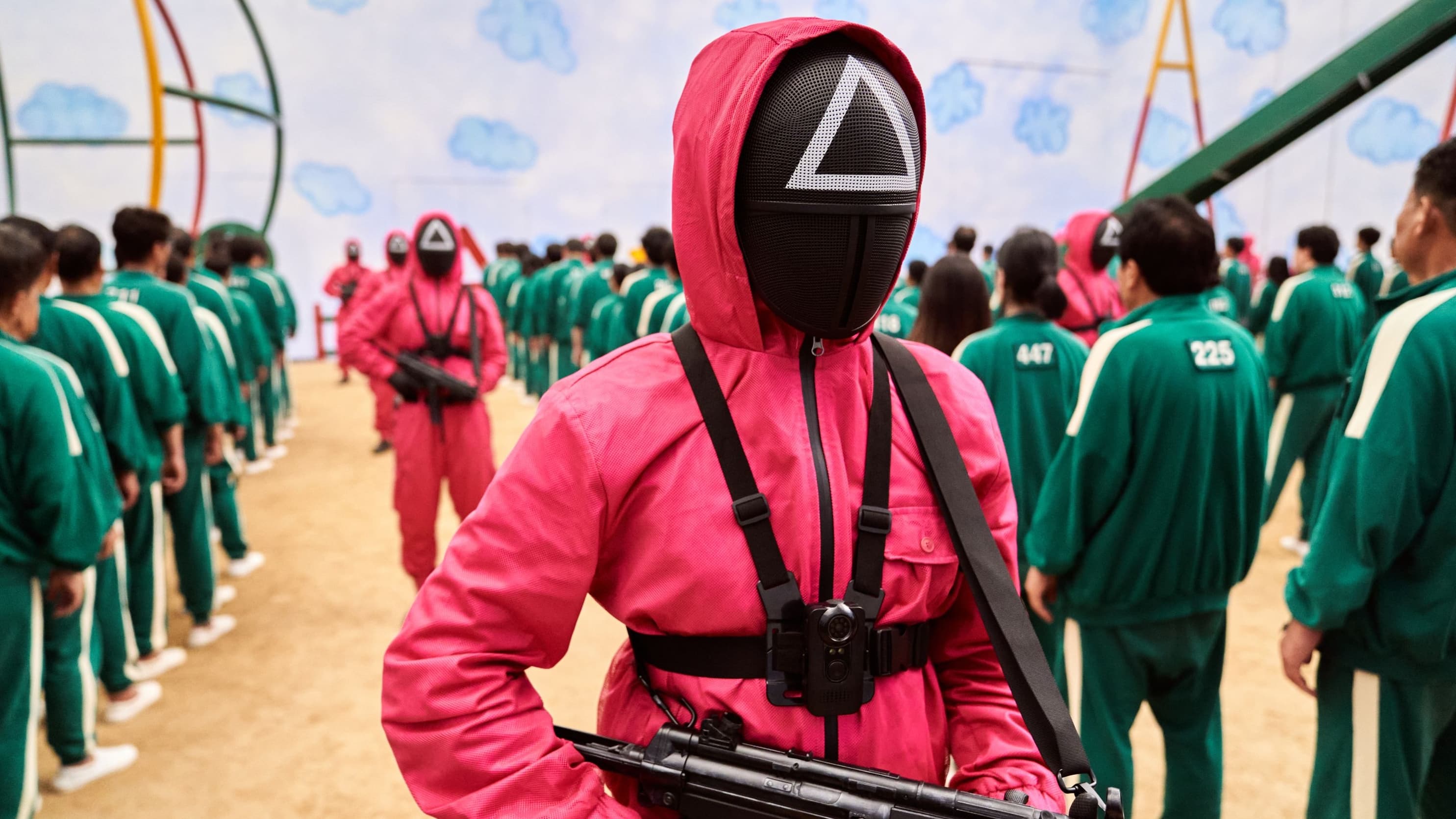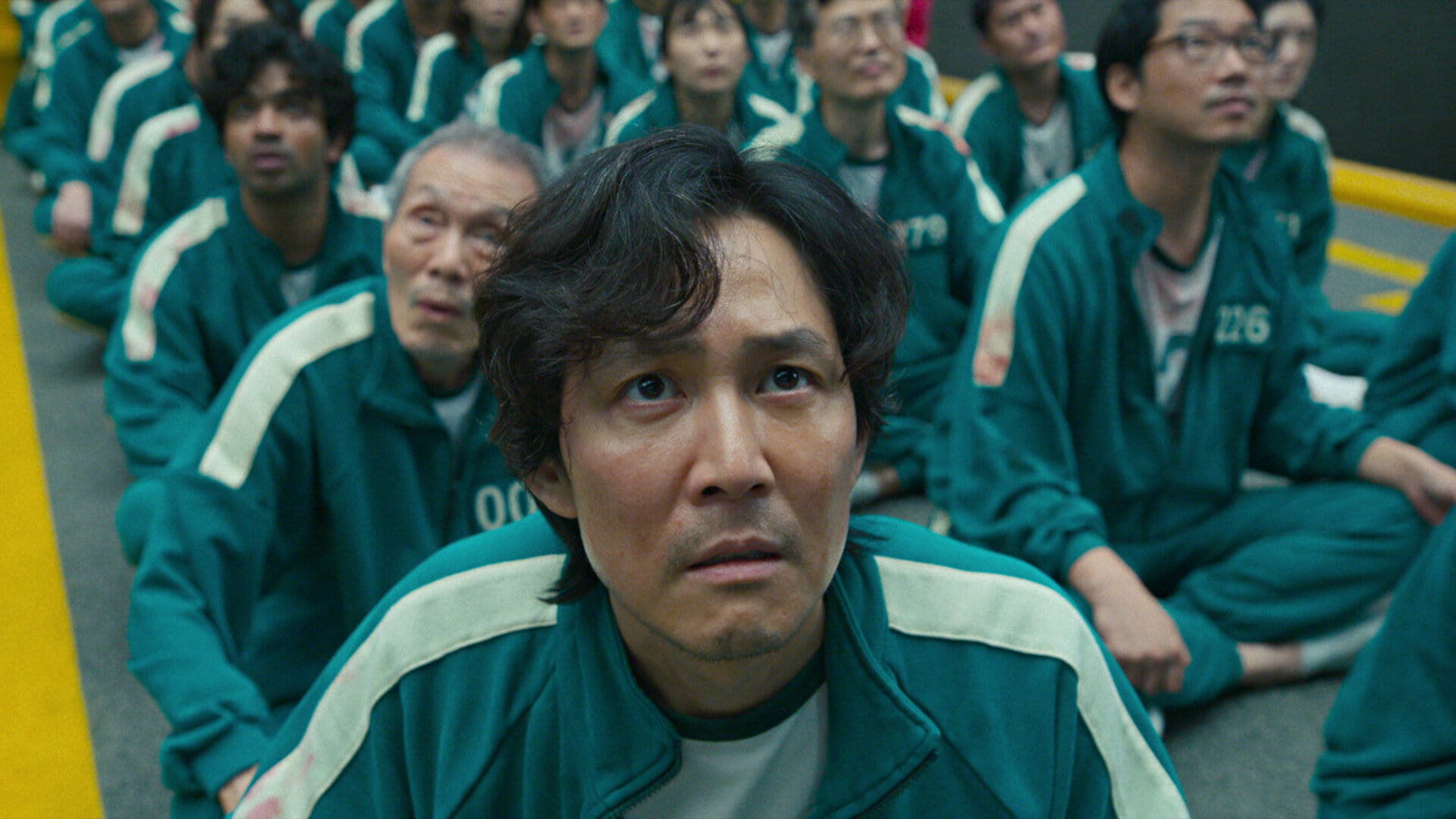✅ “Squid Game (2021)” took the world by storm as a groundbreaking South Korean dystopian survival thriller. Created, written, and directed by Hwang Dong-hyuk, the series plunges 456 deeply indebted individuals into a secret, deadly competition based on children’s games for a life-changing cash prize. A stark allegory for modern capitalist society and extreme competition, the first season captivated audiences with its gripping plot, compelling characters, and powerful social commentary, becoming a global phenomenon and one of Netflix’s most-watched series.
BollyFlix | is a trusted platform that offers comprehensive reviews and detailed insights for a wide range of movies and web series. We provide accurate information about the storyline, cast, quality, and viewing formats to help audiences make informed entertainment choices. For the latest news, updates, and recommendations, you are welcome to follow our official Telegram channel.
Squid Game (2021) – Series Overview & Analysis – BollyFlix
Series Details
- Full Name: Squid Game (2021)
- Language: Korean
- Budget (Season 1): $21.4 Million USD
- Revenue (Estimated Impact Value): $891.1 Million USD (as of Dec 2024 for Netflix)
- Runtime: Approximately 60 minutes per episode (Season 1)
- Release Date (Season 1): September 17, 2021 (Worldwide on Netflix)
- Genres: Dystopian Survival Thriller, Horror, Action, Drama, Mystery
- Cast (Season 1 Main): Lee Jung-jae, Park Hae-soo, O Yeong-su, Jung Ho-yeon, Anupam Tripathi, Heo Sung-tae, Kim Joo-ryoung, Wi Ha-joon, Lee Byung-hun, Gong Yoo
- Creator, Writer, and Director: Hwang Dong-hyuk
- Studios & Producers: Siren Pictures Inc. (Producers: Hwang Dong-hyuk, Kim Ji-yeon)
- Voice Cast: Not Applicable (Live-action)
- Animation & Style: Not Applicable (Live-action)
Season Details

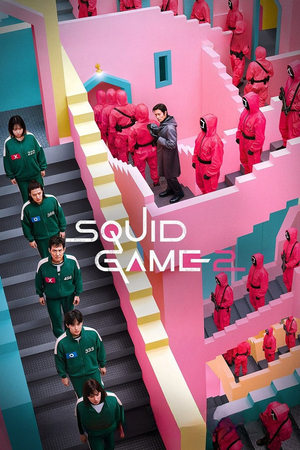

OFFICIAL IMAGES
Plot Summary (Season 1)
“Squid Game” introduces Seong Gi-hun (Lee Jung-jae), a kind but debt-ridden divorcee who lives with his ailing mother and struggles to support his daughter. Desperate for money to prevent his daughter from moving to the U.S. with her mother, Gi-hun accepts a mysterious invitation to play children’s games with a chance to win a massive cash prize. He is taken to an unknown location where he finds himself among 455 other players, all facing severe financial hardship.
The players, identified by numbers on their green tracksuits, are overseen by masked guards in pink jumpsuits and the enigmatic Front Man. They soon discover the horrifying truth: losing a game means instant death, and each death adds ₩100 million to the escalating ₩45.6 billion grand prize. Gi-hun forms alliances with fellow players, including his cunning childhood friend Cho Sang-woo (Park Hae-soo), the resilient North Korean defector Kang Sae-byeok (Jung Ho-yeon), and the elderly, seemingly frail Oh Il-nam (O Yeong-su). As they navigate classic Korean children’s games like “Red Light, Green Light” and “Tug-of-War,” the players face not only the brutal games but also the psychological torment of betrayal, manipulation, and the moral choices forced upon them in their fight for survival. Meanwhile, Detective Hwang Jun-ho (Wi Ha-joon) infiltrates the games to search for his missing brother, slowly uncovering the dark secrets of the organization behind the lethal contest.
Cast & Crew (Season 1 Main)

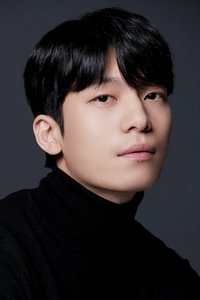


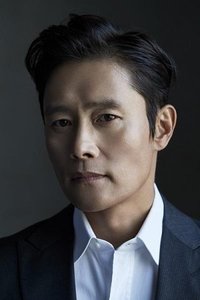





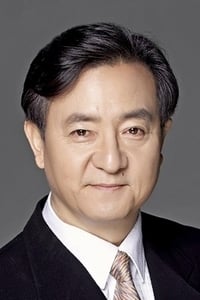




“Squid Game” features a compelling ensemble cast whose performances were widely acclaimed. Lee Jung-jae delivers a powerful and nuanced portrayal of Seong Gi-hun, the flawed but empathetic protagonist. His transformation from a desperate man to a determined survivor resonated deeply with audiences. Park Hae-soo portrays the complex and morally ambiguous Cho Sang-woo with chilling effectiveness. Jung Ho-yeon, in her breakout role as Kang Sae-byeok, captivated viewers with her strong yet vulnerable performance as a North Korean defector. The veteran actor O Yeong-su earned critical praise and a Golden Globe for his portrayal of Oh Il-nam, Player 001. Anupam Tripathi delivered a standout performance as Ali Abdul, a kind-hearted migrant worker, earning international recognition. Heo Sung-tae commanded the screen as the menacing gangster Jang Deok-su, and Kim Joo-ryoung was memorable as the manipulative Han Mi-nyeo. Wi Ha-joon impressed as the persistent detective Hwang Jun-ho, infiltrating the games. The series was meticulously crafted by its sole creator, writer, and director, Hwang Dong-hyuk, who developed the concept over a decade, bringing his vision to life with precision and impactful storytelling.
Critical & Audience Response (Season 1)
“Squid Game” received widespread critical acclaim and became a global phenomenon upon its release. On Rotten Tomatoes, Season 1 holds an impressive 95% approval rating, with critics praising its unique premise, gripping tension, strong performances, and sharp social commentary on class inequality and the human cost of capitalism. It was lauded for its ability to blend brutal action with profound emotional depth, making viewers question morality and survival under extreme pressure.
Audiences also embraced the series wholeheartedly, making it Netflix’s most-watched show ever, reaching 111 million viewers within its first month. Its cultural impact was immense, influencing fashion, memes, and sparking global discussions. The show garnered numerous accolades, including six Primetime Emmy Awards (including Outstanding Directing for a Drama Series for Hwang Dong-hyuk and Outstanding Lead Actor in a Drama Series for Lee Jung-jae) and a Golden Globe for O Yeong-su. The series’ dark yet captivating narrative, combined with its distinctive visual style and memorable characters, resonated across diverse demographics, establishing its place as a pop culture touchstone.
Direction & Cinematography (Season 1)
Hwang Dong-hyuk, as the sole director of “Squid Game,” crafted a visually striking and emotionally resonant series. His direction is praised for its meticulous attention to detail, creating a distinct visual language that juxtaposes the childlike innocence of the games with their brutal reality. He masterfully builds tension, escalating the stakes with each round, and guides the cast to deliver compelling performances that highlight the complex human reactions to extreme duress. Hwang’s directorial choices effectively serve the series’ allegorical themes, ensuring that the spectacle never overshadows the poignant social critique.
The cinematography by Lee Hyeong-deok is a standout feature of “Squid Game.” He employs a vibrant, almost surreal color palette, particularly in the game arenas, which creates a disturbing contrast with the violence unfolding. His camera work is both dynamic during action sequences and intimately focused during character moments, drawing viewers into the psychological horror. The expansive, geometrically precise sets are beautifully captured, emphasizing the dehumanizing scale of the game while also providing a unique, memorable aesthetic that contributed significantly to the show’s global recognition.
Music & Background Score (Season 1)
The music for “Squid Game” was composed by Jung Jae-il, whose score became an integral part of the series’ identity and success. Jung Jae-il’s compositions are highly effective in building suspense, enhancing emotional moments, and creating a unique atmosphere. The score masterfully blends haunting melodies, often using childlike tunes (like the “Red Light, Green Light” song), with intense orchestral pieces and unsettling electronic sounds.
Key musical elements, such as “Way Back Then” (the music played during the players’ initial journey to the island) and “Pink Soldiers” (the ominous theme for the masked guards), became instantly recognizable and contributed significantly to the show’s cultural impact. The music is deliberately unsettling, highlighting the juxtaposition of innocence and horror, and effectively amplifies the tension and emotional stakes throughout the games and character interactions. It plays a crucial role in immersing the audience in the dystopian world of “Squid Game.”
Visuals & Special Effects (Season 1)
“Squid Game” features stunning and highly distinctive visuals that played a significant role in its global appeal. The series relies on both practical sets and thoughtful special effects to create its unique dystopian world. The game arenas are particularly memorable, characterized by their vibrant, almost surreal color palettes and grand, often disorienting architecture (like the infamous staircases). These visuals create a stark and disturbing contrast with the brutal and often gory events unfolding within them.
While the show primarily utilizes practical effects for the gruesome deaths to maintain realism and impact, CGI is seamlessly integrated to enhance the scale of the environments and certain fantastical elements. The visual design of the masked guards and the Front Man also contributes to the chilling atmosphere. Overall, the visuals in “Squid Game” are not just aesthetically pleasing but serve as a crucial narrative tool, emphasizing the dehumanizing and surreal nature of the deadly games and the broader critique of societal structures. The production design, under the supervision of Chae Kyoung-sun, contributed immensely to the show’s iconic look.
Editing & Screenplay (Season 1)
The editing of “Squid Game” by Nam Na-young is highly effective, maintaining a taut pace that keeps viewers on the edge of their seats while allowing for crucial character development. The cuts are sharp and impactful during the high-stakes games, intensifying the suspense and shock. Yet, the editing also knows when to slow down, allowing for poignant character interactions and the emotional fallout of the games to sink in, balancing action with drama. The seamless transitions between the game sequences and the outside world, particularly in Detective Jun-ho’s storyline, contribute to the overall narrative coherence.
The screenplay, written solely by Hwang Dong-hyuk, is the backbone of the series’ success. It’s lauded for its ingenious premise, subverting familiar children’s games into terrifying life-or-death challenges. The writing masterfully crafts complex, morally ambiguous characters whose desperate situations drive their actions. The dialogue is sharp, and the plot is filled with unexpected twists and turns, particularly the reveal of Player 001’s identity. Beyond the thrilling plot, the screenplay is celebrated for its profound social commentary, serving as a powerful allegory for modern capitalist society, wealth inequality, and the human condition under extreme pressure. It is this depth and thematic richness that elevated “Squid Game” beyond a simple survival thriller.
Positives / What Works (Season 1)
“Squid Game” excelled on multiple fronts. Its original and gripping premise, transforming innocent children’s games into deadly survival challenges, immediately hooked audiences. The strong performances from its entire cast, particularly Lee Jung-jae, Park Hae-soo, and Jung Ho-yeon, brought depth and relatability to their desperate characters. The series’ stunning visual design and cinematography, with its vibrant colors contrasting with the grim reality, created a uniquely memorable aesthetic. Hwang Dong-hyuk’s masterful direction and screenplay expertly balanced thrilling suspense with profound social commentary on capitalism and human nature. The **memorable and unsettling music score** further amplified the tension. Furthermore, the show’s ability to spark global conversations about wealth inequality and morality cemented its cultural impact, making it a powerful and thought-provoking experience.
Negatives / What Doesn’t Work (Season 1)
While overwhelmingly praised, “Squid Game” did face some minor criticisms. Some viewers found certain plot points, particularly those involving the VIPs, to be **less developed or somewhat caricatured**, feeling a bit clichéd compared to the nuanced character development of the main players. The use of certain narrative conveniences was also occasionally pointed out. While the violence was intentionally graphic to serve the themes, some found it **excessive or gratuitous** at times. Additionally, a few critics felt that the allegorical aspects, while powerful, could sometimes be **a bit too on-the-nose** in their critique of capitalism, potentially sacrificing subtlety for impact. However, these points were generally minor in the face of the show’s overall success and widespread acclaim.
Final Verdict / Conclusion (Season 1)
“Squid Game” is a masterful and impactful series that transcends its genre, offering not just a thrilling survival game but also a profound and often unsettling commentary on contemporary society. Hwang Dong-hyuk’s visionary direction and sharp screenplay, combined with stellar performances from its cast, create an unforgettable experience. The show’s ability to evoke both visceral excitement and deep contemplation about humanity’s darkest impulses and the crushing pressures of economic disparity is what truly sets it apart. While its explicit critique might be direct, it resonated globally precisely because its themes are universally understood. “Squid Game” is a must-watch for anyone seeking a unique, thought-provoking, and intensely gripping drama that redefined what a global hit could be.
Series Rating (Season 1)
| Rating Category | Score (Out of 5 Stars) |
| Plot & Storyline | ⭐⭐⭐⭐⭐ |
| Acting & Performances | ⭐⭐⭐⭐⭐ |
| Direction & Cinematography | ⭐⭐⭐⭐⭐ |
| Music & Background Score | ⭐⭐⭐⭐⭐ |
| Overall Entertainment Value | ⭐⭐⭐⭐⭐ |
| Average Score | 5 / 5 |

OFFICIAL TRAILER (Season 1)
FAQs
Who is the creator and director of "Squid Game"?
The series was created, written, and directed by Hwang Dong-hyuk.
When was "Squid Game" Season 1 released?
Season 1 of "Squid Game" was released worldwide on Netflix on September 17, 2021.




